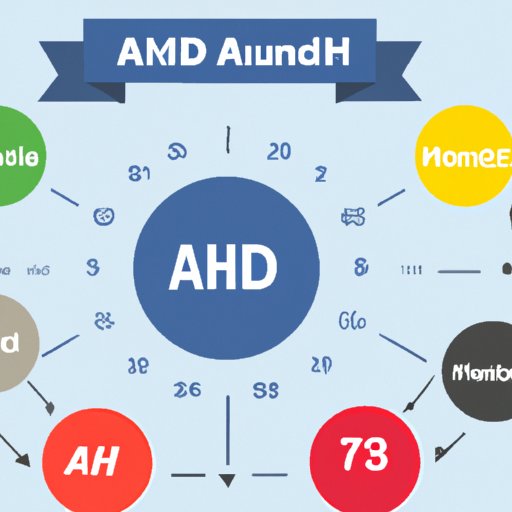Introduction
Antidiuretic hormone (ADH) is a hormone that plays an important role in maintaining the body’s fluid balance. It is produced by the hypothalamus and released into the bloodstream by the pituitary gland. In this article, we will explore how ADH works and what it does to keep the body in balance. We will also look at the science behind ADH and how it affects fluid balance and blood pressure levels.
Exploring the Basics: How Does ADH Work?
ADH is a hormone produced in the hypothalamus and released into the bloodstream by the pituitary gland. It is responsible for regulating the amount of water lost from the body through urine production. When the body’s water levels become low, ADH is released and causes the kidneys to reabsorb more water, thus reducing the amount of urine produced.
ADH plays a key role in maintaining the body’s fluid balance. It helps to regulate the amount of water in the body, as well as the concentration of electrolytes such as sodium and potassium. This helps to ensure that the body functions properly and that vital organs have enough water to work effectively.

The Science Behind ADH: An Overview
ADH is a peptide hormone composed of nine amino acids. The structure of ADH allows it to bind to receptors on the surface of cells, triggering a cascade of events inside the cell. This is known as the mechanism of action of ADH.
ADH is produced in the hypothalamus and then secreted into the bloodstream by the pituitary gland. From there, it travels throughout the body and binds to receptors on the surface of cells in the kidneys, liver, and other organs. When these receptors are activated, they trigger a series of chemical reactions inside the cells, resulting in the production of proteins and other molecules that help to regulate fluid balance and other processes in the body.

Understanding the Role of ADH in Maintaining Fluid Balance
ADH plays a key role in regulating the amount of water in the body. When the body’s water levels become too low, ADH is released and causes the kidneys to reabsorb more water, thus reducing the amount of urine produced. This helps to maintain the body’s fluid balance and ensures that vital organs have enough water to function properly.
ADH also helps to regulate the concentration of electrolytes in the body, such as sodium and potassium. These electrolytes are essential for many bodily processes, so it is important that their levels remain within a certain range. ADH helps to achieve this by controlling the amount of water in the body and ensuring that electrolyte levels remain balanced.

Investigating the Interaction Between ADH and the Kidneys
The interaction between ADH and the kidneys is critical for proper functioning of the body. ADH helps to regulate the amount of water in the body by causing the kidneys to reabsorb more water and reduce the amount of urine produced. This helps to maintain the body’s fluid balance and ensures that vital organs have enough water to work effectively.
ADH also helps to regulate the concentration of electrolytes in the body, such as sodium and potassium. By controlling the amount of water in the body, ADH helps to ensure that electrolyte levels remain balanced. This helps to keep the body functioning properly and prevents health complications that can arise from an imbalance in electrolyte levels.
Examining How ADH Influences Blood Pressure Levels
ADH plays a role in controlling blood pressure levels. When ADH is released, it causes the blood vessels to constrict, or narrow. This increases the resistance of the blood vessels, which results in an increase in blood pressure. This helps to maintain normal blood pressure levels and keeps the body functioning properly.
ADH also helps to regulate the amount of water in the body. By controlling the amount of water in the body, ADH helps to ensure that blood pressure remains steady. This helps to prevent health complications that can arise from an imbalance in blood pressure levels.
Conclusion
In conclusion, ADH plays an important role in maintaining the body’s fluid balance and regulating blood pressure levels. It is produced in the hypothalamus and released into the bloodstream by the pituitary gland. ADH helps to regulate the amount of water in the body, as well as the concentration of electrolytes such as sodium and potassium. It also helps to control the narrowing of the blood vessels, which helps to maintain normal blood pressure levels. Understanding the role of ADH in the body is essential for maintaining good health and preventing health complications.
(Note: Is this article not meeting your expectations? Do you have knowledge or insights to share? Unlock new opportunities and expand your reach by joining our authors team. Click Registration to join us and share your expertise with our readers.)
